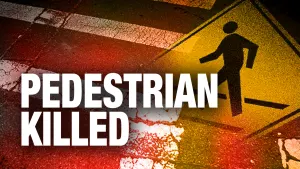More Stories
The MTA cleared another hurdle this week into making the congestion pricing plan for New York City a reality.
Gov. Kathy Hochul announced that the MTA, the New York State Department of Transportation and the New York City Department of Transportation released the Final Environmental Assessment for the congestion pricing plan.
An initial finding by the Federal Highway Administration says there is no significant negative impact on the environment.
Some Long Island residents who work in New York City, however, are opposed to the plan.
"New York City is a vital place," says Sharon Hershkowitz. She and her husband have owned Balloon Saloon in Tribeca for 44 years and drive from Long Island to the city every day.
Hershkowitz believes many small businesses in the city will shut down if the Central Business District Tolling Program goes into effect.
"Congestion pricing is going to increase expenses. When expenses increase and small businesses like Balloon Saloon and other ones cannot absorb all of it, they'll leave and it will be a city without character," Hershkowitz says.
The plan would provide discounts to low-income drivers and those who drive into the toll zone below 60th Street in Manhattan during overnight hours.
Other changes would include capping tolls on taxis and for-hire vehicles.
The MTA says the plan would reduce traffic congestion and accidents and address climate change.
Some Long Islanders who drive into the city say the brakes should be put on the congestion pricing plan.
"I think the extra pricing is terrible on the consumers. So many things are expensive nowadays with food, insurance, anything you pay for. Raising the tolls is just too much on everybody," says Marc Mullen, of Floral Park.
"I wouldn't want any changes. It's hard enough getting into the city, driving into the city," says Floral Park resident Charlie Piccirillo.
After a 30-day public input period, the MTA hopes to receive final federal approval this summer.
After that, a Traffic Mobility Review Board -- which will include a Long Island representative -- will hold meetings and come up with a recommendation for toll amounts, potential discounts and exemptions.
Hershkowitz is asking elected officials to visit her store to see the challenges she faces.
"So I would like to appeal to the city politicians, to actually walk in the shoes of a small businessperson, to see all the burdens that we bear because the city, the Transit Authority and other agencies are just not doing their job," she said.
If congestion pricing goes into effect, it would potentially start in the middle of next year. However, there are many steps that would need to take place.
The most immediate step is for the MTA to meet to discuss the rollout of the infrastructure.
More from News 12
1:57

Rescue effort of hundreds of rats begins at condemned Rocky Point home
1:29

Breezy and chilly overnight into Monday on Long Island
1:02

SUV winds up in covered pool after bizarre Lake Grove crash
0:19

Man in his late 70s struck and killed by car in Long Beach
1:40

‘ICE Out For Good’ protests across Long Island in wake of Minneapolis shooting
1:56
